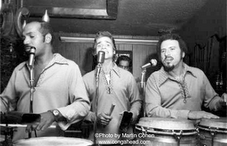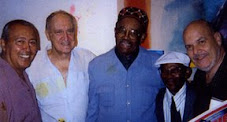 There was no dancing in the streets when the Instrument of Surrender was being signed aboard the USS Missouri in
There was no dancing in the streets when the Instrument of Surrender was being signed aboard the USS Missouri in Aside from the usual black market activity and swapping chewing gum for sex, there was little in the way of entertainment during the early days of the Occupation. True, the porn shops were reopening, but there was no music in the night air.
When I met a young Japanese circus acrobat speaking understandable English, who had worked in the States before the war, we teamed up to open the Tokyo Officers Club. We named it that defiantly, hanging up our sign in an alley off the
Opening night was slow but the Victrola was the drawing card in an otherwise silent night. Like the Israeli State Symphony signaling the return to normalcy after the Israeli-Arab War, this music was carrying a clear message to the curious passersby, who stepped out of the bombed streets and into another world. The GIs were there to drink, and the thin, bashful girls that entered, whose curiosity had overcome their shyness, were made welcome—no longer the enemy, they were the main attraction that brought the soldiers in their army boots onto the floor to dance with the girls in their gaetas (wooden platforms to avoid the muddy streets). One record was entitled “Little Grass Shack in
If

